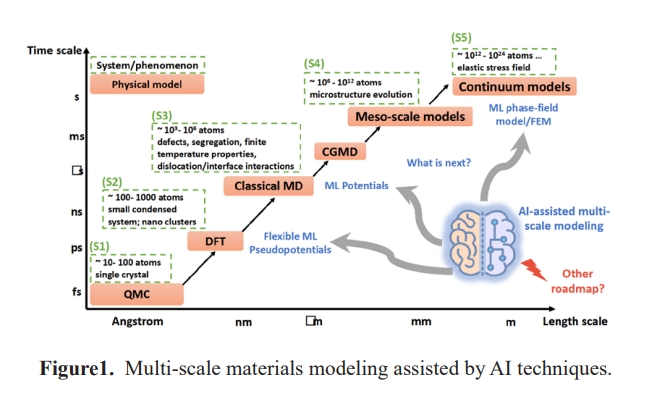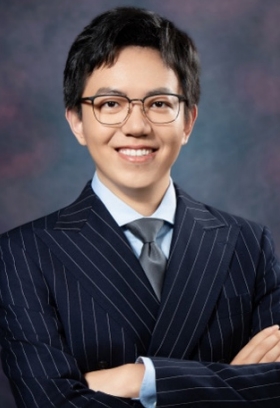EXTENDED ABSTRACT: “AI for Materials” aims to facilitate the design of new materials with exceptional properties and enhance our understanding of composition-structure-property relationships by incorporating advanced AI techniques. This talk will be divided into two parts: the application of (i) small/large atomic models and (ii) large language models in materials science. In the ffrst part, we will discuss the application of small AI atomic models in atomistic simulations, focusing on defect properties in structural materials including Ni and Ti-based alloys. We will then present our latest work on large atomic models for alloys covering 53 elements in the periodic table. In the second part, we will explore the development of materials-specific large language models built on general LLMs (GPT-4, Gemini-Pro, …) employing prompt engineering techniques for materials property classification and prediction (see our recent paper on Materials Today). Our future research will focus on harnessing the power of AI, particularly language models and deep neural networks, to design advanced materials for structural, ferroelectric, and battery applications and understand relevant physical phenomena.

Keywords: AI for Materials; Atomistic Simulations; Defect Properties; Large Language Models
REFERENCES:
[1] T. Wen, R. Wang, L. Zhu, L. Zhang, H. Wang*, D. J. Srolovitz, Z. Wu*, Specialising neural network potentials for accurate properties and application to the mechanical response of titanium, npj Computational Materials 7, 206 (2021).
[2] T. Wen, A. Liu, R. Wang, L. Zhang, J. Han, H. Wang*, D. J. Srolovitz, Z. Wu*, Modelling of dislocations, twins and crack-tips in HCP and BCC Ti, International Journal of Plasticity 166, 103644 (2023).
[3] Z. Li, T. Wen*, Y. Zhang*, X. Liu, C. Zhang, A. S. L. S. Pattamatta, X. Gong, B. Ye, H. Wang, L. Zhang, D. J. Srolovitz*, An Extendable Cloud-Native Alloy Property Explorer, arXiv:2404.17330.
[4] S. Liu, T. Wen*, A. S. L. S. Pattamatta, D. J. Srolovitz*, A Prompt-Engineered Large Language Model, Deep Learning Workffow for Materials Classiffcation, Materials Today, in press (2024).

Dr. Tongqi Wen is currently a Research Assistant Professor in the Department of Mechanical Engineering at The University of Hong Kong. He graduated with a bachelor’s degree from Northwestern Polytechnical University in 2014 and obtained his joint Ph.D. degree from Northwestern Polytechnical University and the United States’ Ames National Laboratory in 2019. His research interests include machine learning potentials, atomic-scale simulations of defect properties, high-entropy materials, simulations of the properties of liquids and amorphous materials, and AI for Materials. From 2020 to 2022, Dr. Wen served as a Postdoc at the Institute for Advanced Study at City University of Hong Kong and then at the Department of Mechanical Engineering at The University of Hong Kong. He has published over 30 SCI papers in journals such as Materials Today, Acta Materialia, npj Computational Materials, Advanced Science, and Physical Review B, with more than 1,900 citations. His published work has earned him the Ross Cofffn Purdy Award from the American Ceramic Society, established in 1949 and awarded globally each year. He is also one of the major contributors to DeepModeling, the largest open-source community in the AI for Science ffeld.